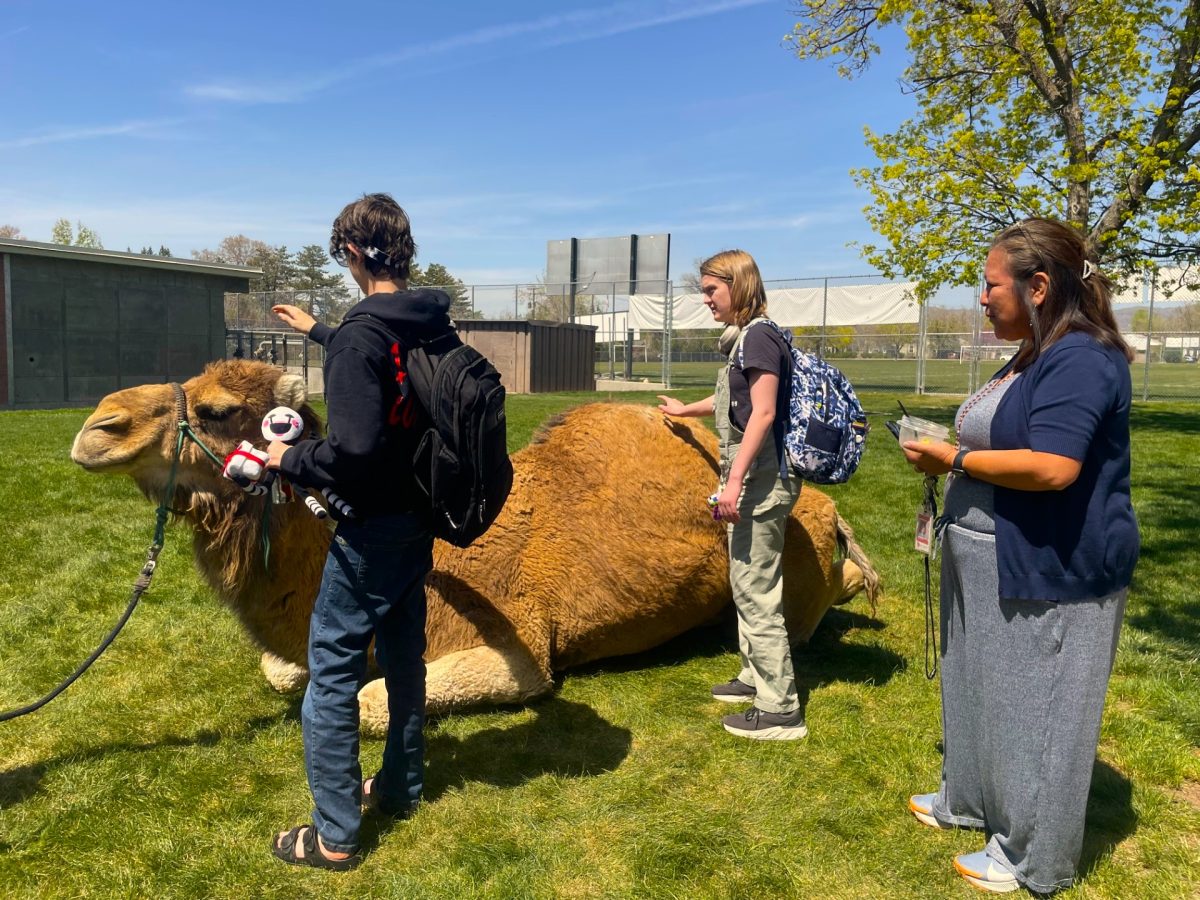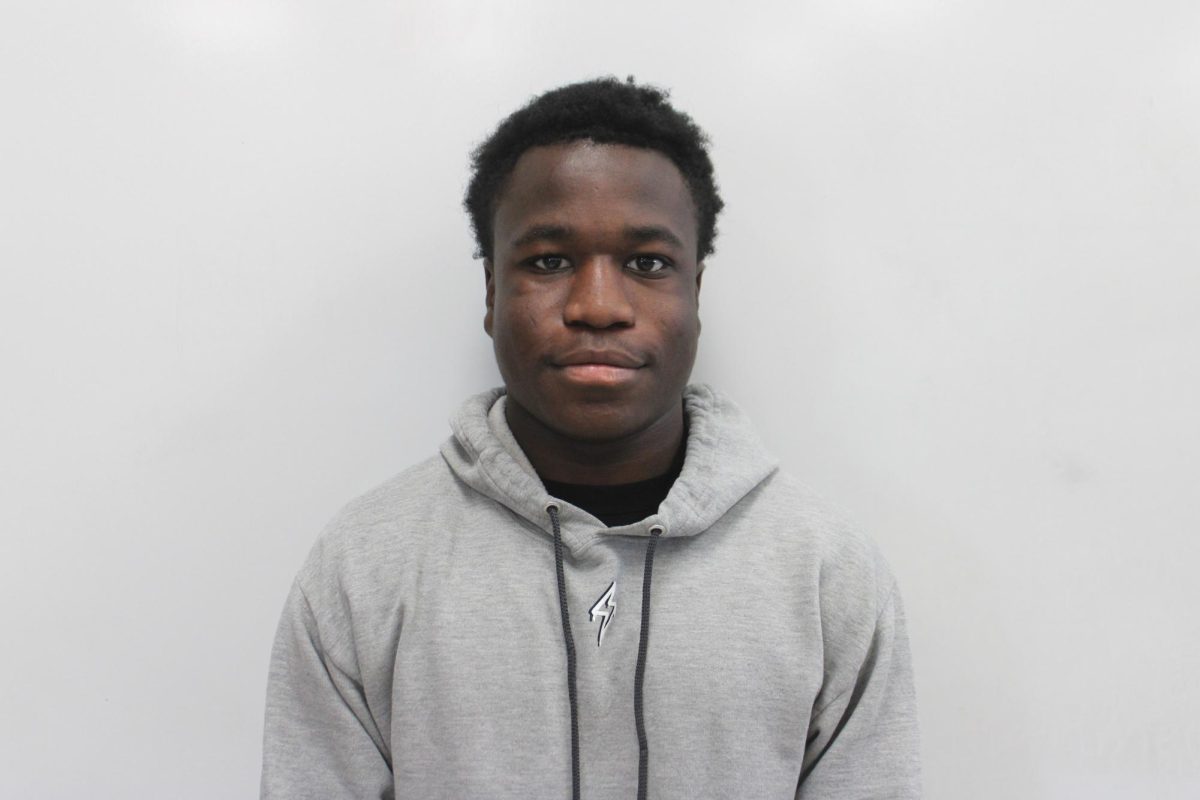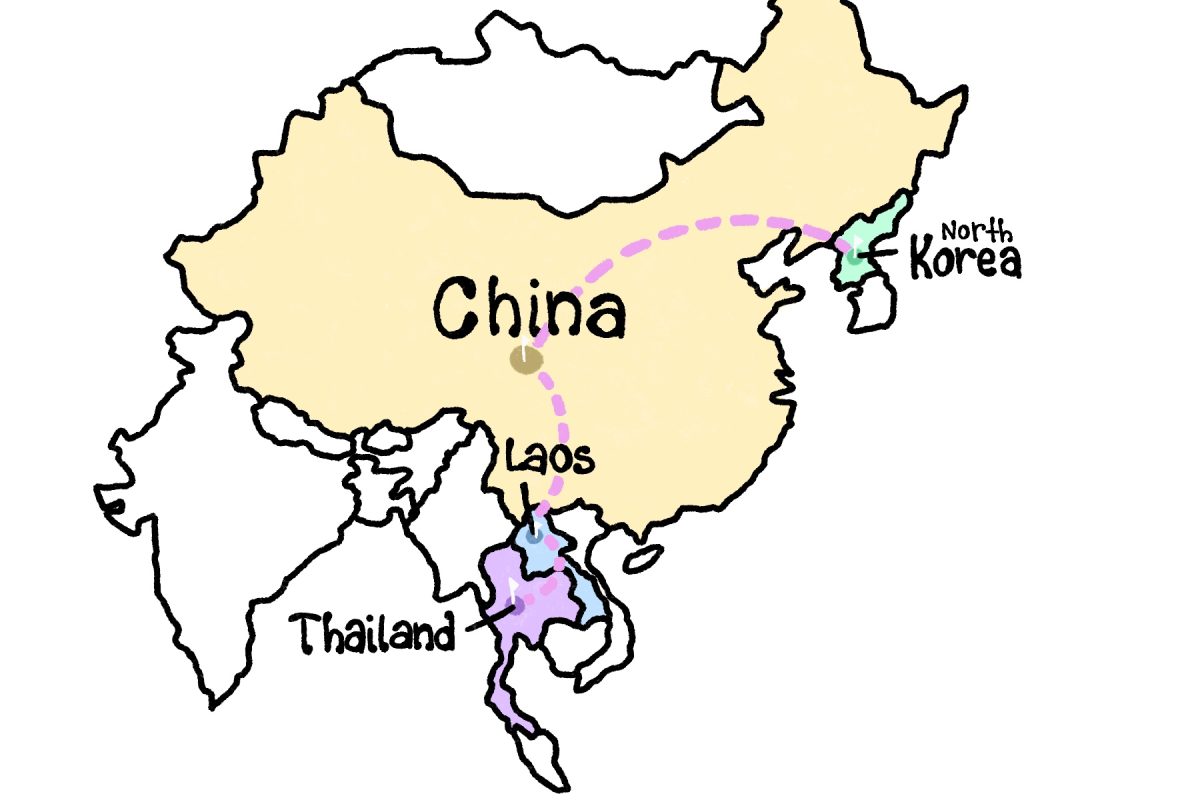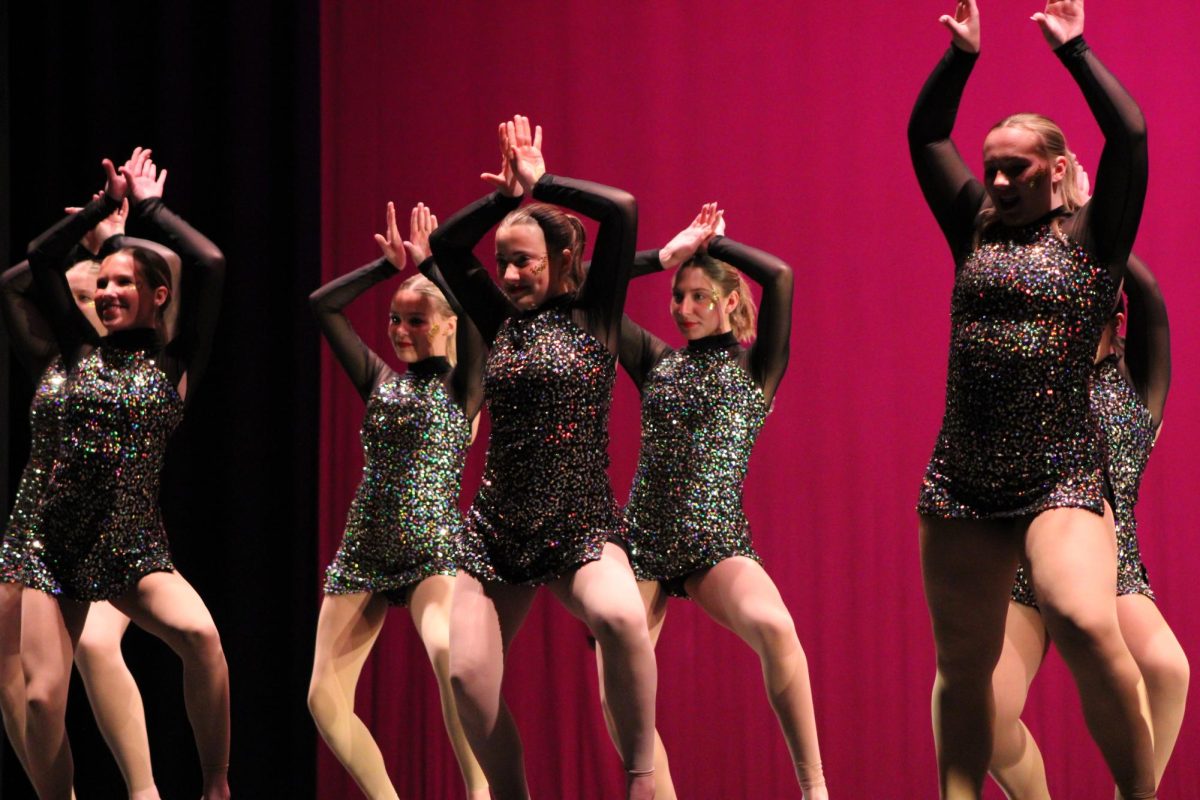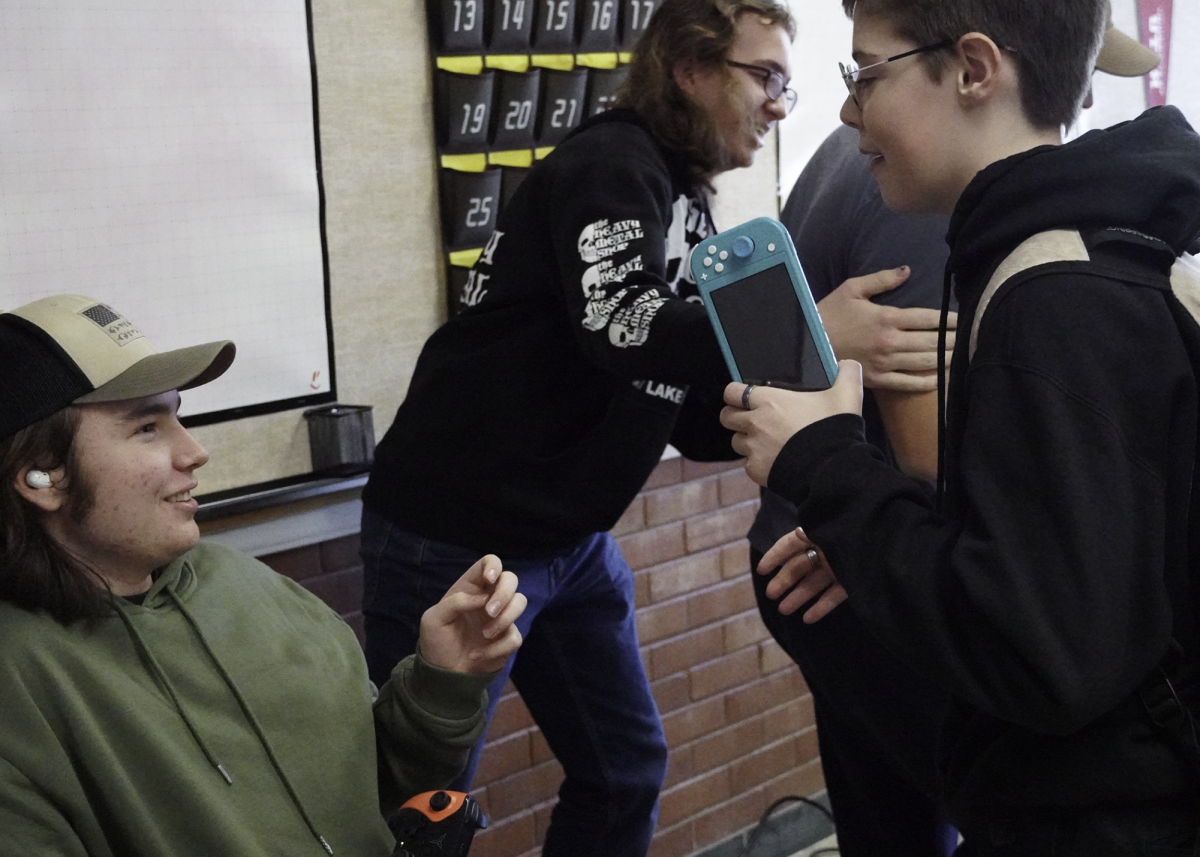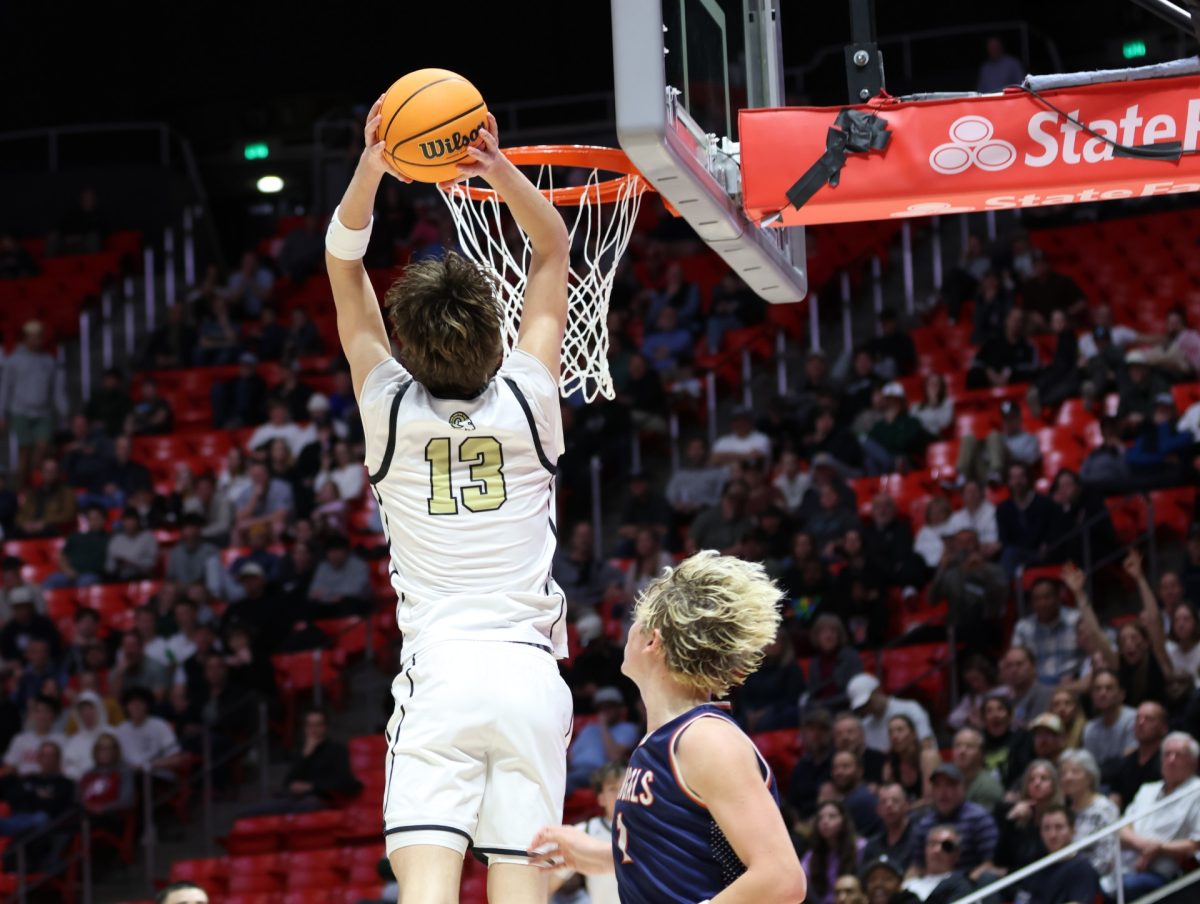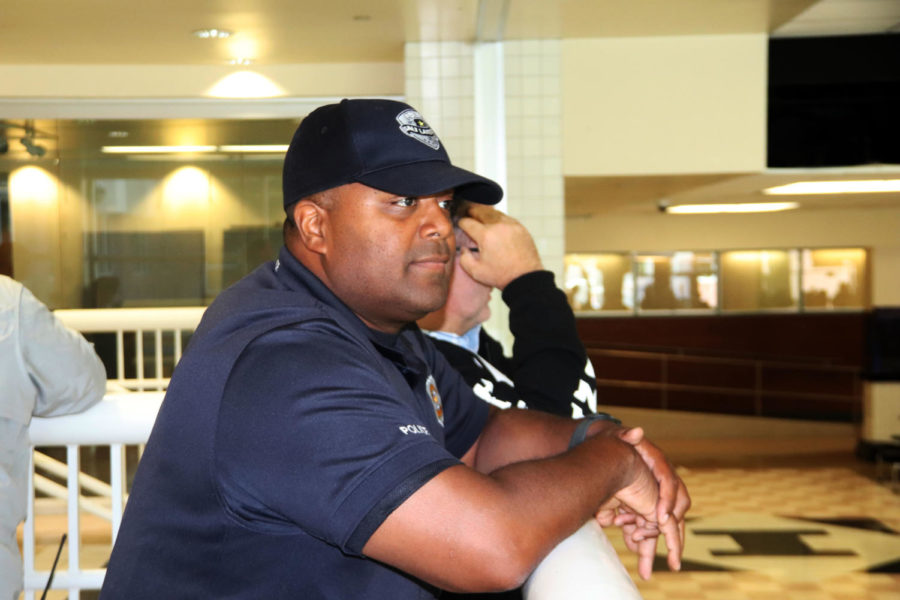The Uppsen Downes Of Police Life
Uppsen Downes watches over first lunch during his patrol at Highland.
September 11, 2019
Here’s the situation: you’ve taken cover behind your police car, a bullet-wound to the calf, and you’re armed with only a handgun. The target? A heavily protected veteran who is equipped with an assault rifle and 1,000 rounds of ammunition.
Though it sounds like a scene straight from Criminal Minds or NCIS, it was a very real incident presented to Salt Lake City police officer Uppsen Downes.
Born and raised in San Francisco, California, Downes always had service work in his sights.
“Military was high on my list, and of course, playing sports,” Says Downes. So he did just that. Downes joined the Army, leaving with 6 years of military police experience. In 2009, he joined the Salt Lake City police department. Only a year later, he would be put in the aforementioned situation.
“I was going to a different call that got cancelled, and two witnesses knocked at my window at a stop light and told me what they saw,” Downes says. The witnesses reported a man pacing in front of The Grand America Hotel. While heading over to investigate, Downes received another call for officers to respond to the scene.
After asking the gunman to drop his weapon, he was instantaneously exposed to heavy fire. Downes took cover behind the fender of his patrol car, taking an unprotected citizen with him. While surrounded by gunshots and with a wound in his leg, Downes had to act fast. He could either wait for backup to arrive or take action himself.
Given the golden opportunity of a lapse in gunfire, Downes took the opportunity to fire. 75 feet away, Downes fired three shots, one of them being fatal to the gunman, and was awarded the Purple Heart for his bravery.
This act of heroism is a prime example of the situations that most people imagine when they think of police work. The rush of adrenaline pumping through one’s veins as they remember their training, taking down a threat to the public.
Often, these events mystify us. What causes someone to jump into danger? Why do they react, where most would freeze? For Downes, it begins with the people.
“It’s easy just to say some cheesy answer like ‘I just want to help people’–which is true. But what drives me? It’s like my way of giving back,” he says, “I like being around people, I like talking to people, I like helping people. So this job allows me to do a lot of that. It makes me provide a safe environment for those around me and hopefully for my kids and future generations.”
This goal to provide safety lays the foundation of what Downes credits for his success on the job: training.
“With the training that we get, there’s a process you go through,” Downes says. “One of the first things that you do [in training] is an incident where most people would run. Your first thought is ‘safety,’ and the safety of those around me. What are they running from? Can I make something safe? Do I need to call somebody to make something safe? And you start going through a process.”
The training process contains a variety of exercises, such as written scenarios, hands-on activities, and the shooting range.
“Those are things that we constantly do, and we change the scenario a bit so it’s never the same. We have to evaluate what’s going on, we can’t just act rash,” Says Downes.
Vigorous training allowed Downes to react the way that he did in the face of a crisis. In his interview with the Deseret News, Downes said this:
“You fall back on what you know.”
However, one of the less discussed topics is the aftermath of these events. Despite having saved a countless amount of lives, there were some repercussions of this incident for Downes.
“There were a few personal hardships. One was my relationship,” Downes says, “The ex-girlfriend no longer wanted me to be a police officer because of the dangers that, as officers, we expect.”
When sworn in to the force, officers understand the uncertainty and threatening nature of their jobs. For them, the honor to serve is far greater than the fear of harm. This can be difficult for the loved ones in their lives.
“It was hard for her,” Downes says, “It was the beginning of the end of our relationship.”
Even having the title of ‘officer’ can have repercussions. In today’s climate, police officers have become somewhat of a hot topic. Questions have arisen about their true role in society: protect or population control? Downes has strong feelings on the subject.
“As a police officer, when we see or hear about another officer doing bad, we hate it more than the public. Do you know why? That one person that did something bad? The media will blow it up and make it look like all of us are doing that,” Downes said. “And that in turn makes our job harder. We don’t want to work with people who will cross that line.”
Because of the sensationalizing of stories, the public has had a more prominent role in police operations. Cell phones have let the Internet have a first-hand look into tragedies at the hands of the police. But how has this affected smaller-scale incidences?
“You’re always going to have those people who react before they think,” Downes said. “They’re overly passionate, so they get half of a story and their passion takes over and they drive. But then they don’t take a step back to look at the full picture.”
Despite this, Downes has a call to action to help solve the problem.
“We have to work harder as a community, not just individuals based on our race, to bridge gaps between our neighbors, law enforcement, and city government. They’re all related in one way, shape, or form,” he said. “We have to work harder as a community, not just individuals based on our race, to bridge gaps between our neighbors, law enforcement, and city government. They’re all related in one way, shape, or form.”
In addition to the social impacts, these events can be rather traumatic, manifesting into illnesses such as post-traumatic stress disorder. Fortunately, Downes has not faced any issues of this sort, but does recognize it as “something [he] has to live with for the rest of [his] life.”
Despite being hailed as a hero, Downes describes the highlights of his career to be the simpler things.
“Any time you get to help,” he said. “Being on the scene of the birth of a baby. Finding lost kids, returning them. Something as simple as helping a disabled driver; their car’s out of gas or they’ve got a flat tire and you get out to help them. Then you get a thank you for it. Small stuff.”
The idea of heroism embodies only the newsworthy moments, glorifying the acts of bravery without paying recognition to the life in between. When asked about hero culture, Downes said this:
“At times [it can feel overrated] but that’s human nature. As kids we’re always looking for a hero, whether it’s in sports, in life, or looking right at your own parents. It’s just how we’re built, to look for a goal, something or someone, to be better.”
Hero culture has changed with the times, but overall, it has the same underlying message.
“You have young kids and younger generations that always look up to firefighters. They look up to doctors because that’s what they want to be, or astronauts. We’re always going to have these things.”
For Downes, it is not the title of Officer that brings the status of hero. It is the honor of being able to help others in their times of need.
“[Being a hero] means I did what I was supposed to. Maybe I was in the right place at the right time, and I did the best job possible for that situation or incident,” he said.
Being a hero is a full-time job, whether it be in the midst of a shootout or helping a cat from a tree. After all, even Superman had a 9 to 5.


